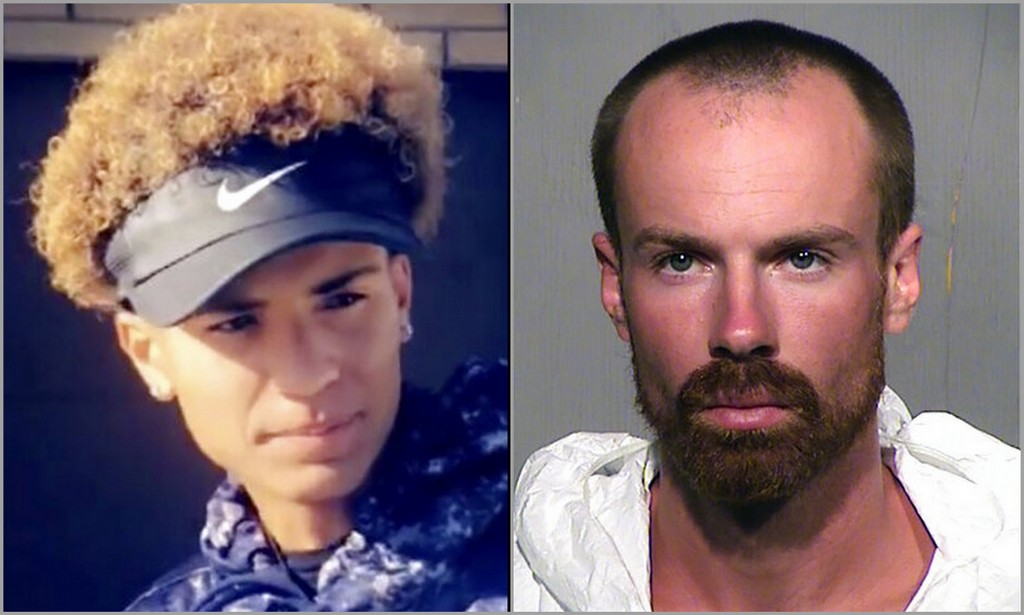[ad_1]
By Anita Snow, The Associated Press
A White man who authorities say was out of prison for two days when he stabbed a Black teen on July 4 because he felt threatened by the youth’s rap music at a suburban Phoenix convenience store was indicted July 11 on first-degree murder charges.
Elijah Al-Amin “did nothing to warrant the brutal and senseless attack that took his life,” an emotional Maricopa County Attorney Bill Montgomery said in announcing the murder charge. Montgomery, who said he has a 16-year-old child, explained that Arizona does not have a hate crime law, but stiffer penalties can be imposed at sentencing.

Police arrested Michael Adams after finding him near the scene with a pocket knife and blood on his clothes. A grand jury on July 10 indicted Adams, 27, on one count of first-degree murder in the 17-year-old’s killing. He is being held on $1 million bond and is due in court on July 18.
Montgomery did not directly address claims by Adams’ current defense attorney Jacie Cotterell that her client is mentally ill. He also didn’t comment on how Adams’ release from prison on a prior assault conviction was handled.
Court records show that Adams served 13 months for aggravated assault on a corrections officer at a county jail. Adams was in jail because of a 2017 arrest on charges he waved a brick at a security guard and told him he would “put this brick through your face,” record shows.
Cotterell told the judge at his initial appearance hearing last week that her client was mentally ill and had been released from prison without any medication, “no holdover meds, no way to care for himself.”
A former defense attorney, Josephine Hallam, said last October that Adams had been diagnosed as autistic, and suffered from attention deficit hyperactivity disorder and a “sensory processing disorder.” Adams believed the brick to have “magical” powers that would protect him, Hallam said.
Department of Corrections spokesman Bill Lamoreaux said in a statement that “the tragic death is terrible, and Mr. Adams will have to answer for his alleged actions.”
Lamoreaux said that when Adams was released he “was not designated seriously mentally ill” and that once the agency transported him from the state prison complex in Yuma to the Phoenix area he comes from it “had no further legal authority over him.”
[ad_2]
Source link

